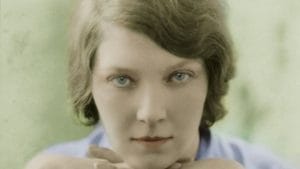26–28 June 2014
Institute of English Studies, University of London
This panel considered Ford Madox Ford’s standing – within modernist studies and the culture at large – in 2014, focusing particularly on his First World War tetralogy Parade’s End. The Tietjens novels have received considerable attention in recent years for several reasons: a major critical edition of the tetralogy was published in 2010–11 by Carcanet Press, providing for the first time corrected texts, scholarly introductions, discussions of the textual histories, and detailed annotations; in 2012 a major international conference on Parade’s End gathered together more than 70 delegates from around the world at the IES, London; also in 2012, Sir Tom Stoppard’s five-part television adaptation of the novels, starring Benedict Cumberbatch, Rebecca Hall and Adelaide Clemens, aired on BBC2; and, as the First World War centenary approaches, readers and critics are increasingly being drawn to the book Anthony Burgess described as ‘the finest novel about the First World War’. Each of the papers examined Parade’s End today, either in the light of the new scholarly edition or the television adaptation, and in the context of the international community of Ford scholars represented by the Ford Madox Ford Society. Considering the ways in which this group of researchers has responded and will continue to respond to recent developments in Ford scholarship – and in the broader cultural conversation around Ford – allows us to reflect on Ford’s position as a modernist writer now as well as looking ahead to the future direction of Ford studies.
Papers:
- Rob Hawkes (Teesside University): ‘It’s Going to Be Hard Work: Parade’s End and the Modernist Adaptation’
- Rebekah Lockyer (University of Birmingham): ‘Editing Ford’s Rhythms’
- Max Saunders (King’s College London): ‘Parade’s End, Editing, and 21st Century Ford’





